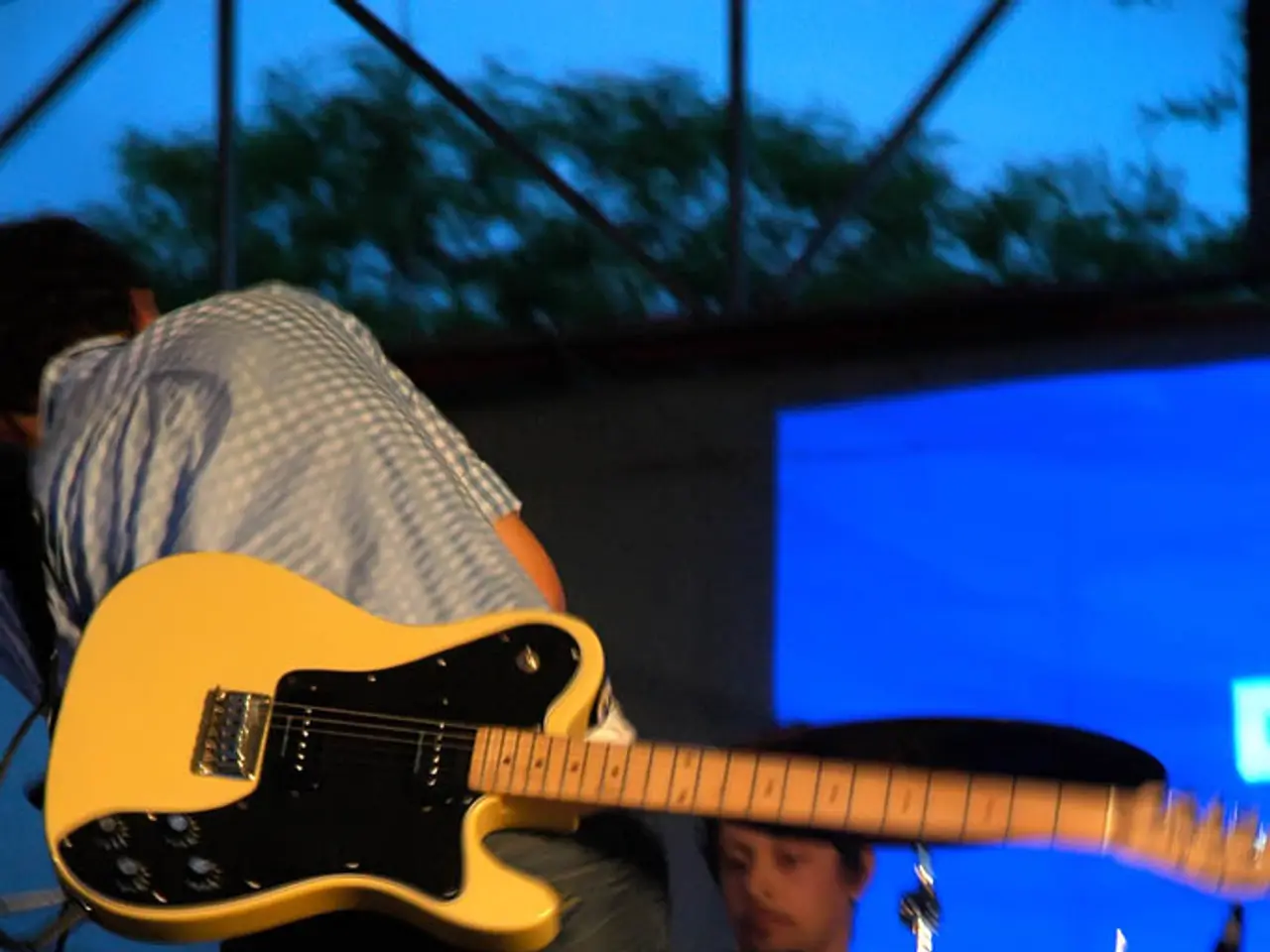United Kingdom's regulatory framework for acquiring music rights for documentaries
=====================================================================
Documentary filmmakers in the UK must navigate a complex web of regulations when it comes to music licensing, as the industry is governed by strict copyright laws based on fundamental principles.
These regulations protect musical works and sound recordings, ensuring that creators receive due credit and remuneration for their work. Understanding these legal frameworks is essential for documentary filmmakers, as it can help them make cost-effective decisions regarding music licensing and avoid potential infringement claims.
One key aspect of UK music copyright law is the duration of protection. In the UK, copyright protection is automatic upon creation of an original musical work or sound recording, and it lasts for 70 years after the death of the last surviving author (or composer), or 70 years from release for sound recordings made after 1963. For music specially created for films, including documentaries, protection lasts 70 years after the death of the principal creator linked to the film.
Another important factor to consider is the multiple rights that copyright covers. These rights include the musical composition (melody, harmony, lyrics), the sound recording, and, if applicable, the film itself as a whole. As a result, documentary filmmakers must obtain the appropriate licenses before using copyright-protected music, which often means securing synchronization (sync) licenses for musical compositions, master use licenses for the specific sound recordings, and performing rights depending on the film’s public exhibition or broadcast method.
Moral rights are another consideration, as they protect the creator's right to be credited and to object to derogatory treatment of their work. This may impact the filmmaker’s use of the music, and it is important to respect these rights to avoid potential legal disputes.
Collective management organizations such as PRS for Music and PPL can simplify the licensing and royalty collection process on behalf of music creators and performers. By working with these organizations, documentary filmmakers can ensure that they are in compliance with the law and that they are remunerating the appropriate parties for the use of copyright-protected music.
AI-generated music presents emerging complexities, as UK law currently treats copyright as applying to human creators, and ownership of AI-generated content is still being defined. Filmmakers using AI music tools should exercise caution, as courts and lawmakers clarify this area.
In summary, documentary filmmakers in the UK must navigate a legal framework where music copyright protects compositions and recordings with long durations, requires licensing before use, respects creators’ moral rights, and is increasingly challenged by new technologies like AI. Engaging with rights holders or collective management organizations early is essential to secure licenses and avoid infringement. Failure to understand these essential principles can lead to costly legal disputes, so it is important for documentary filmmakers to educate themselves on UK music copyright laws.
References:
- UK Music Copyright Law for Filmmakers
- PRS for Music
- PPL
- UK Government: Copyright and related rights
- Navigating the complexities of technology, documentaries filmmakers must consider the usage of AI-generated music carefully, as UK law currently treats copyright as applying to human creators, and ownership of AI-generated content is still undefined.
- To avoid potential legal disputes, it is essential for documentary filmmakers to educate themselves on moral rights, which protect the creator's right to be credited and to object to derogatory treatment of their work, especially when using copyright-protected music.
- In addition to understanding the legal frameworks, documentary filmmakers can utilize online education platforms, such as those provided by PRS for Music and PPL, to simplify the licensing and royalty collection process for music, movies, and TV content, thus fostering education-and-self-development and promoting entertainment within the industry.




